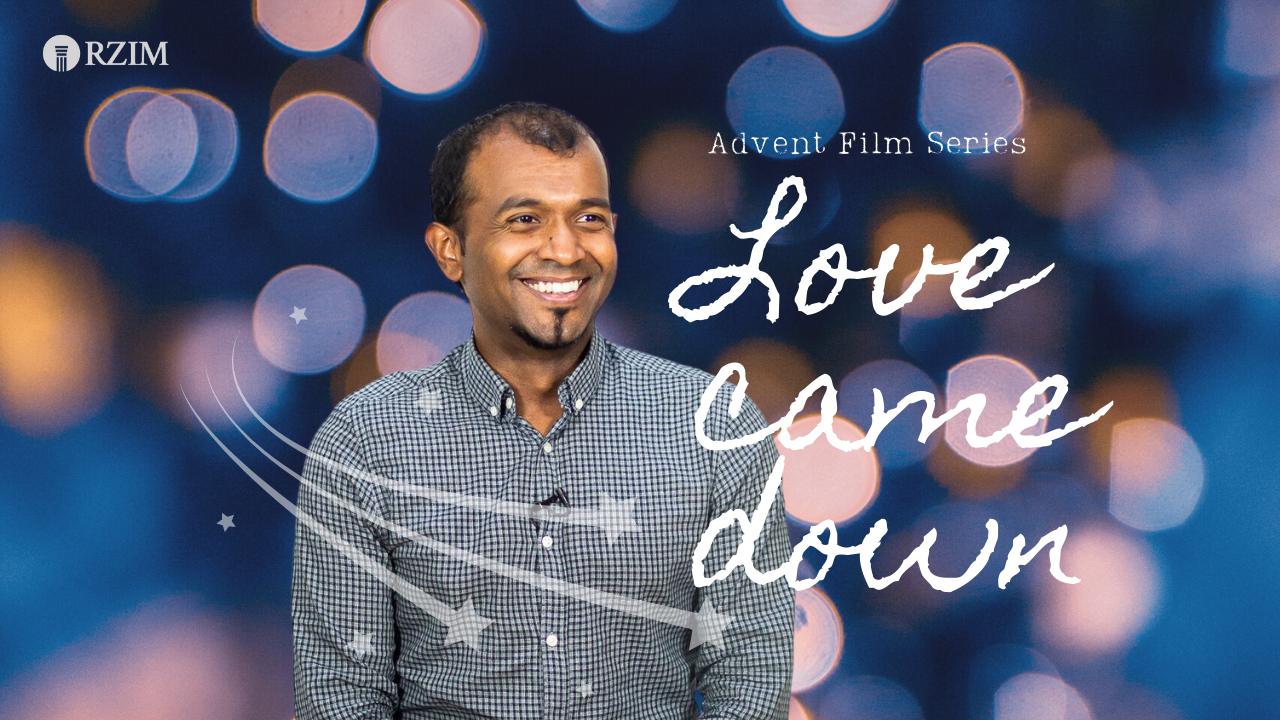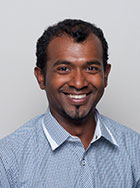Advent Week 2: Being loved in the purest form
Via RZIM Asia-Pacific
Max Jeganathan // December 8, 2020, 12:25 am

In 1 Corinthians 13, Paul set a seemingly impossible standard for love. But Jesus demonstrated this love in its purest form, says RZIM’s Max Jeganathan. Photo courtesy of RZIM Asia-Pacific.
In Shakespeare’s Romeo & Juliet, Juliet famously proclaims: “My bounty is boundless as the sea, my love as deep. The more I give to thee, the more I have because both are infinite.”
Juliet does an interesting thing here – she aligns her love for Romeo with the sea. But then she goes on to say that it’s boundless and it’s infinite.
There’s no shortage of people writing, thinking and singing about love.
Well, the problem is that we know that the ocean while incredibly deep, is not boundless and is not infinite. This uncovers an interesting truth about the concept of this thing we call love.
Love is the theme of this second week of Advent.
When we look through human history, it’s interesting that there’s no shortage of people writing, thinking and singing about love.
From playwright William Shakespeare to pop singer Beyoncé, everyone in between and beyond has talked and written about love.
But when they do, they’re most often talking about the quantitative nature of love rather than the qualitative nature of love – why we need more love, why love is the most important thing, why we love, whom we love, what we love.
These are all quantitative questions.
Very rarely do we take a step back to think about the actual nature and quality of what love is.
An impossible standard … made possible
Thankfully, about 1,500 years before Shakespeare wrote Romeo and Juliet, another great thinker and writer wrote about the qualitative nature of love.
He was the Apostle Paul, who happened to be a follower of Jesus.
“I don’t know about you but that is the kind of love that I am simply not capable of in my own strength.”
“Love is patient, love is kind. It does not envy, it does not boast, it is not proud. It does not dishonour others, it is not self-seeking, it is not easily angered, it keeps no record of wrongs. Love does not delight in evil but rejoices with the truth.” (1 Corinthians 13:4-6)
These things are great, and they resonate so easily with the human heart.
But then Paul took it to another level, setting a seemingly impossible standard for the purest form of love.
He said: “Love always protects, always trusts, always hopes, always perseveres. Love never fails.” (1 Corinthians 13:7-8)
I don’t know about you but that is the kind of love that I am simply not capable of in my own strength.
Jesus demonstrated love in its purest form: Sacrificial love, selfless love, love that looks to protect.
But that is the kind of love that Paul was pointing to all those years ago. He was pointing to the love that came down that very first Christmas – when God came into the world in love.
Jesus did it exuding and demonstrating love in its purest form: Sacrificial love, selfless love, love that looks to protect.
He came down for our sake, not for His sake.
That is the love that you and I have access to, this Advent season and Christmas season, in and through the person of Jesus Christ and my hope for you this season is that you will find that love.
This is part of RZIM Asia-Pacific’s Advent film series by Max Jeganathan, where he explores the Advent themes of Hope, Love, Joy and Peace and how we can experience these in their fullest this Christmas. The video was posted online by RZIM Asia-Pacific here. Republished with permission.
For more resources on this topic and others from the RZIM Asia-Pacific speaking team, visit the RZIM Asia-Pacific website www.rzim.asia.
MORE FROM THIS ADVENT SERIES:
We are an independent, non-profit organisation that relies on the generosity of our readers, such as yourself, to continue serving the kingdom. Every dollar donated goes directly back into our editorial coverage.
Would you consider partnering with us in our kingdom work by supporting us financially, either as a one-off donation, or a recurring pledge?
Support Salt&Light



